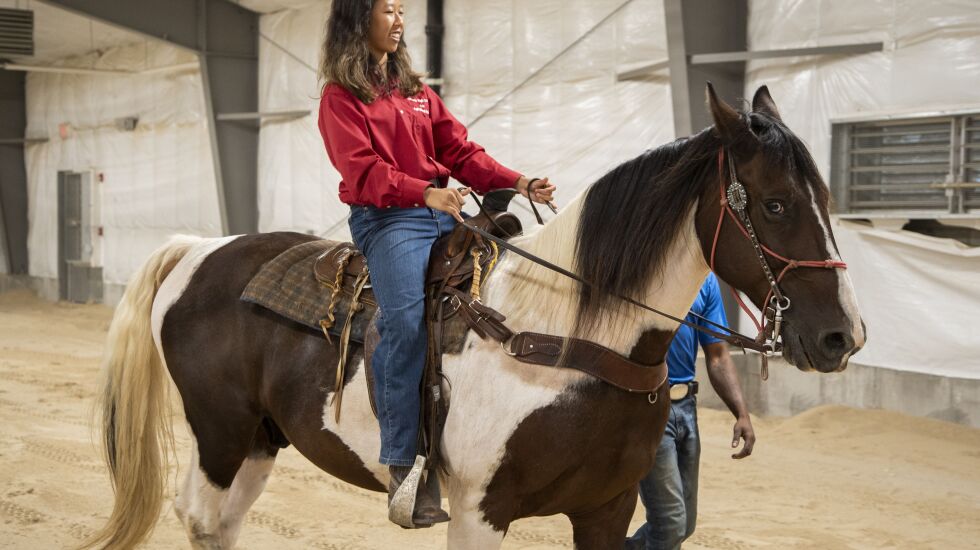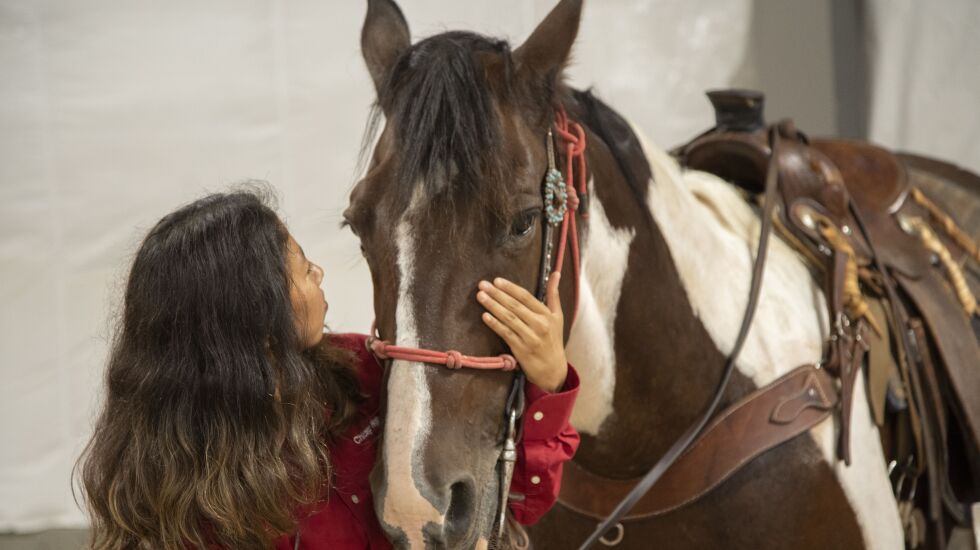
Stressed and anxious students at CPS are getting support from an unusual donation Friday: horses.
Stone, Sugar and Thor are the newest members of the Chicago High School for Agricultural Sciences community, which trains students for careers in agriculture and is the only campus at Chicago Public Schools with a farm — a nearly 79-acre one that’s the oldest in Chicago.
The three workhorses allow the Far South Side Mount Greenwood school to launch a long-desired therapeutic riding program to help kids get in touch with their emotions and through tough times.
“I’ve seen it be life-changing for students,” Principal Bill Hook said.
The school’s 800 students — in addition to taking standard high school classes — help care for cattle, pigs, pygmy goats, alpacas, chickens, turkeys and, of course, horses.
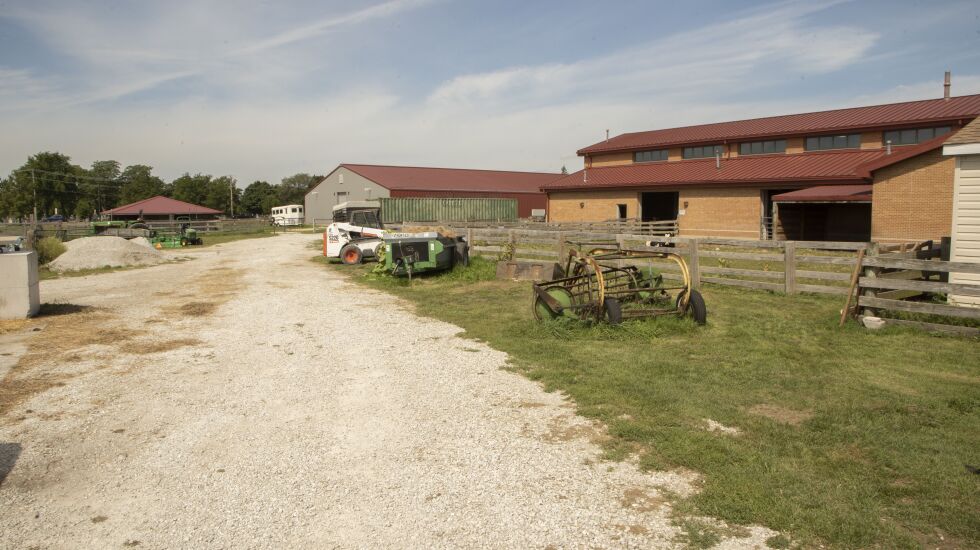
In the past, students learned how to care for breed horses, but the school never had enough trained in therapeutic riding to launch a program — there was only one before this donation. The 16-year principal has wanted to offer therapeutic riding for years.
In particular, he imagines the program will make a big difference for students with disabilities. The school has the largest special education cluster program in CPS.
The three horses are quarter horses, workhorses bred for “the American cowboy and the American rancher” said breeder Brandon James, who raised Sugar and Thor at a ranch in East Kansas. Breeder Lovie Marable raised Stone in Springfield.
Donated by the the National Latino Farmers and Ranchers Trade Association to bolster programming at the school, the horses — aged 9, 15 and 19 — are a bit older. James said that helps in a school setting because horses become more patient with age and less likely to “become frustrated” with students.
“You want to get the experienced horses for the inexperienced kids,” he said.
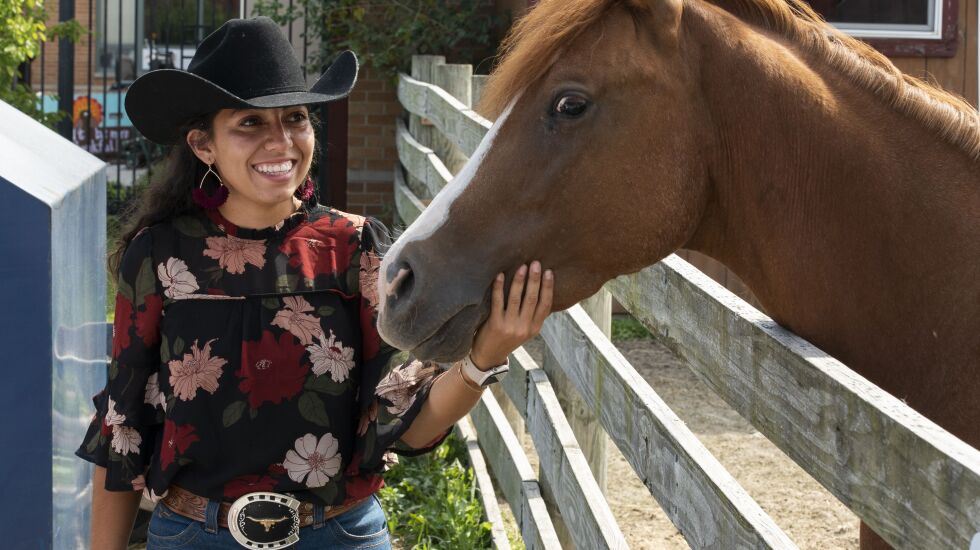
Students will have the opportunity to pet, groom and ride the horses — time that will be a “medicine” for stressed and anxious students, said school riding coordinator Paulina Arellano, a West Lawn native and alum of the school. Not all kids know exactly what they’re going through, but caring for horses teaches them to recognize and understand their emotions, she said.
“I always say that horses aren’t handled by hand, they’re handled by emotion,” Arellano said. “So you have to correct your emotions before even getting near.”
The therapeutic riding program will also be available after school for the community at large, Hook said, mentioning adults with disabilities, first responders and veterans with PTSD as potential beneficiaries.
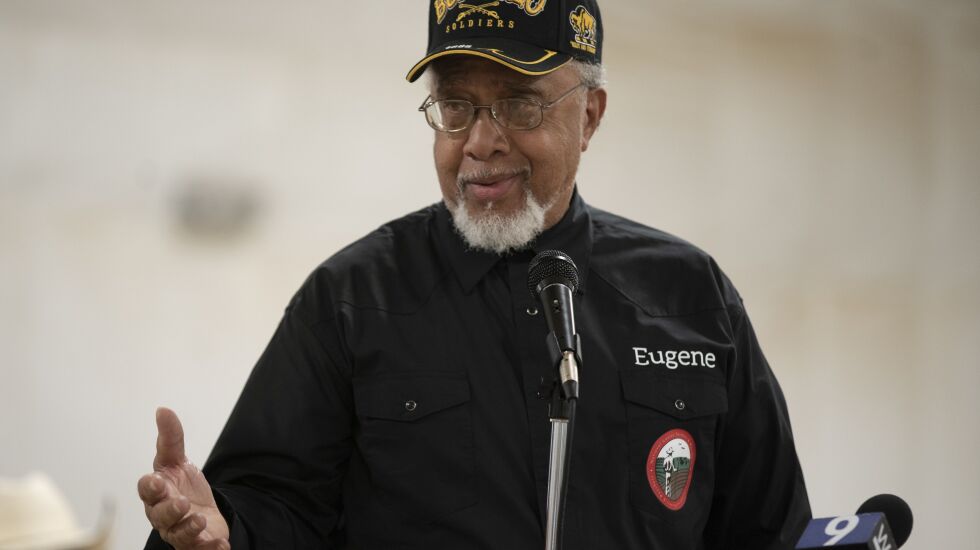
The Latino trade association bought the horses from the breeders and had been in touch with the school about ways to help out. The association’s deputy director Eugene Pickett, 71, said the group is looking for ways to make the industry more attractive to students as many of those in the field retire.
Not all the students will become ranchers, he imagines. But he hopes positive experiences with horses will spark an interest in the industry for students, whether they want to work on a farm, in a veterinarian’s office or as an administrator for the United States Department of Agriculture.
Pickett admits the horses were expensive — he wouldn’t say exactly how much they cost — but necessary.
“Whatever tools you have that are going to inspire or motivate people, that’s what it’s all about,” he said.
Michael Loria is a staff reporter at the Chicago Sun-Times via Report for America, a not-for-profit journalism program that aims to bolster the paper’s coverage of communities on the South and West sides.
